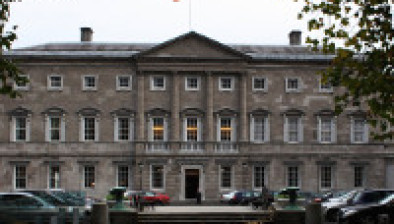High Court: Designation of UK as ‘safe third country’ ultra vires and unlawful

The High Court has determined that the minister of justice’s designation of the UK as a ‘safe third country’ was unlawful and ultra vires her powers due to the absence of certain safeguards required by EU law.

About this case:
- Citation:[2024] IEHC 183
- Judgment:
- Court:High Court
- Judge:Ms Justice Siobhán Phelan
Delivering judgment for the High Court, Ms Justice Siobhán Phelan determined: “The failure to require the minister to be satisfied that a person would not be subjected to serious harm on transfer to a third country, if designated as safe, means that Ireland is in breach of the requirements of EU law, specifically Article 3(3) of the Dublin III Regulations.
“The designation of the United Kingdom of Great Britain and Northern Ireland under s. 72A of the 2015 Act (as amended) is therefore unlawful and ultra vires the powers of the Minister.”
Background
In December 2020, the minister for justice exercised her powers under s.72A of the International Protection Act 2015, as inserted by the Withdrawal of the United Kingdom from the European Union (Consequential Provisions) Act 2020, by signing the International Protection (Safe Country) Order 2020 into law. The 2020 Order designated the UK as a ‘safe third country’ for the purposes of the 2015 Act.
In two lead cases, both applicants, men from Iraq and Nigeria who had been refused asylum in the UK, challenged by judicial review the lawfulness of this designation in light of the UK’s Rwanda policy, pursuant to which the UK government agreed to transfer asylum seekers to Rwanda for processing of their protection claims in exchange for its provision of development funding to Rwanda and certain costs related to each located person.
Both applicants took issue with the refusal to admit them to the Irish protection process and with the decision to return them to the UK for processing of their protection claims in reliance on its safe country designation.
The Rwanda policy had not yet been implemented due to a series of legal challenges, culminating in the judgment of the UK Supreme Court in AAA & Ors. v Secretary of State for the Home Department [2023] 1 WLR 4433; [2023] UKSC 42 which found that it was unlawful as it exposed the claimants to a risk of ill-treatment by refoulement, Rwanda having a poor human rights record.
Following that judgment, the UK government took measures to render the policy lawful, with its plans being subject to a great deal of criticism by various bodies.
The High Court
Ms Justice Phelan noted at the outset that it was unnecessary for her to decide whether the UK could be considered a safe country for international protection applicants.
The judge found that the substantive issues to be determined included whether the designation of the UK as a safe third country was ultra vires EU law and whether the designation breached the 2015 Act for the minister’s failure to review the current situation in the UK, whether an obligation arose on part of the minister to consider the risk of rights violations before making a return order, whether the challenge to this decision was a collateral attack on the inadmissibility decision, and whether the IPAT decision was irrational in Applicant B’s case having regard to developments in the UK concerning the Rwanda policy.
The court found that s.72A as inserted into the 2015 Act by the 2020 Act, whilst mirroring the requirements of Directive 2005/85/EU (the Procedures Directive), did not require the minister to only operate a safe third country designation where satisfied that there is no risk of serious harm as required by Directive 2013/32/EU (the Recast Procedures Directive).
Ms Justice Phelan recognised that there is “a gap between Irish and EU law” as the new amendments “fail to provide for the full extent of the safeguards mandated under Article 38(1)(b) of the Recast Procedures Directive as applicable where a member state is excused from its obligations to ensure that an asylum claim is determined in accordance with common minimum standards in a member state”.
The judge continued:
“these safeguards are binding on Ireland by reason of the State’s adherence to the Dublin III Regulations and the express terms of Article 3(3) of the said Regulations. The failure to require the minister to be satisfied that a person would not be subjected to serious harm on transfer to a third country, if designated as safe, means that Ireland is in breach of the requirements of EU law, specifically Article 3(3) of the Dublin III Regulations. The designation of the United Kingdom of Great Britain and Northern Ireland under s. 72A of the 2015 Act (as amended) is therefore unlawful and ultra vires the powers of the minister.”
Having regard to the applicants’ assertions that the minister had breached the requirements of the 2015 Act to review on a regular basis the situation in a country designated as ‘safe’, the court considered that the State had failed to adopt rules of methodology sufficient to ensure that a protection applicant was not returned to a third country in breach of the minimum requirements of EU law.
Finding herself satisfied that the minister is required to conduct a broader rights scrutiny at the point of return in accordance with EU law where the need arises, Ms Justice Phelan considered that the minister was precluded from doing so by s.51A(1) of the 2015 Act where no residual discretion was provided for, and as such the failure to provide for a power to conduct a broader rights scrutiny where warranted renders Irish law incompatible with EU law obligations in this regard also.
Ms Justice Phelan observed: “The safe third country concept is provided for as a matter of domestic law. It is not precluded by EU law for so long as mandatory conditions precedent to its application, prescribed by EU law, are in place and operating effectively. Mandatory conditions prescribed by EU law have not been provided, however, through the legislative provision made for same under the 2015 Act (as amended).”
The court continued: “Specifically, no proper provision has been made for conditions precedent to the application of the safe third country concept necessitated by Article 38(1)(b) of the Recast Procedures Directive as regards the risk of serious harm within the meaning of Article 15(c) of the Recast Qualifications which applies by operation of Article 3(3) of the Dublin III Convention. Similarly, no proper provision is made for the Minister or the Tribunal to be satisfied as to whether Article 27(1)(d) of the Procedures Directive (as reflected in s.72A(2)(d) of the 2015 Act) is met with regard to the existence in the third safe country of a possibility to request refugee status and, if found to be a refugee, to receive protection in accordance with the Geneva Convention when returning an applicant…”
The judge determined: “In the absence of these provisions, the designation of the United Kingdom and Great Britain as a safe third country is unlawful as a matter of EU law.”
Conclusion
Accordingly, the High Court proposed to grant declarations that the designation of the UK as a safe third country pursuant to the 2020 Order is contrary to the State’s obligations under EU law, and that the decisions made by the respondents in respect of the applicants on the basis of that designation should be quashed.
A v Minister for Justice & Ors; B v International Protection Appeals Tribunal & Ors [2024] IEHC 183











